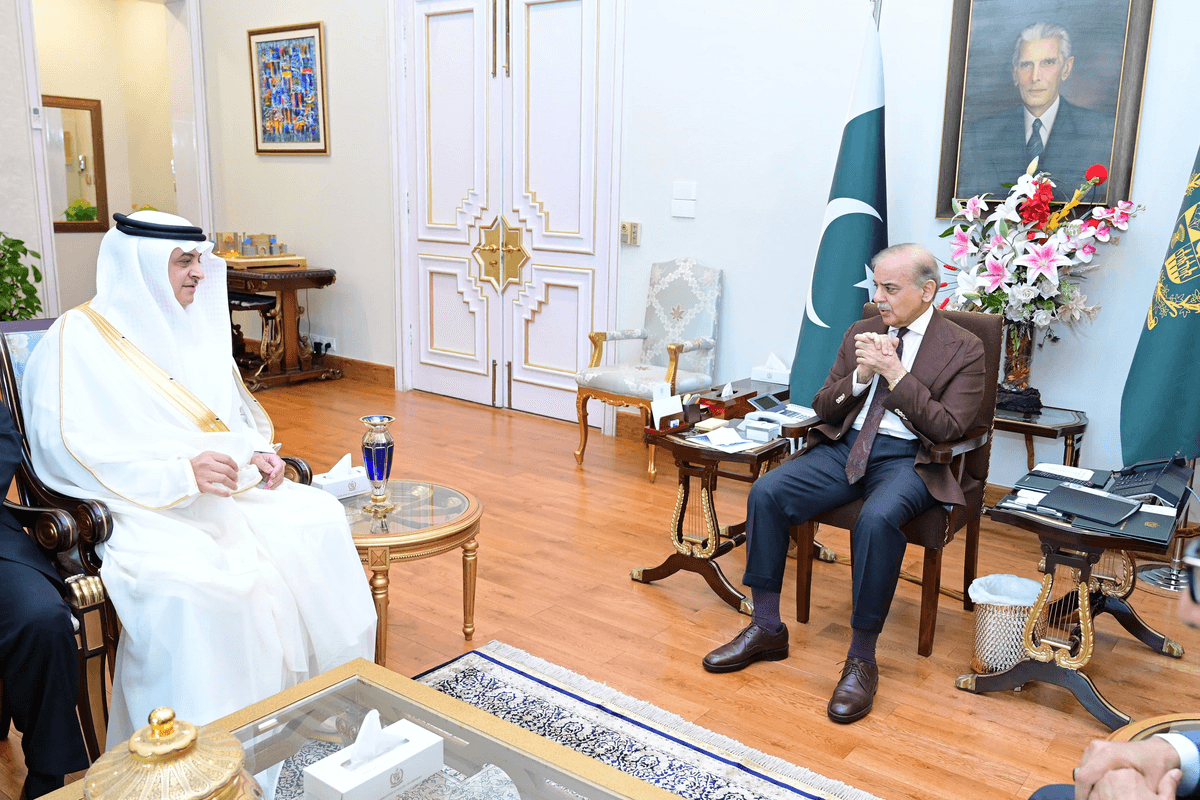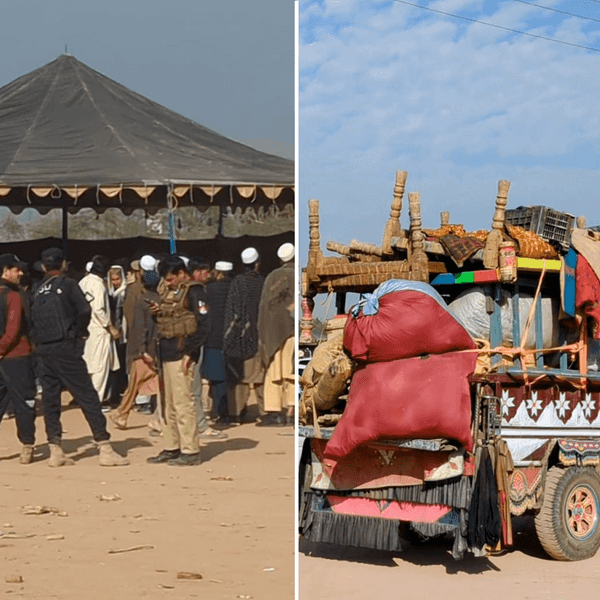Pakistan urges Gulf nations to help defuse tensions with India
PM rejects India’s claims over the Pahalgam attack as baseless and reiterates call for an impartial international probe

Javed Hussain
Correspondent
I have almost 20 years of experience in print, radio, and TV media. I started my career with "Daily Jang" after which I got the opportunity to work in FM 103, Radio Pakistan, News One, Ab Tak News, Dawn News TV, Dunya News, 92 News and regional channels Rohi TV, Apna Channel and Sach TV where I worked and gained experience in different areas of all three mediums. My journey from reporting to news anchor in these organisations was excellent. Now, I am working as a correspondent with Nukta in Islamabad, where I get the opportunity of in-depth journalism and storytelling while I am now covering parliamentary affairs, politics, and technology.

Ambassador of Saudi Arabia Nawaf bin Saeed Al-Maliky meets Pakistan Prime Minister Shehbaz Sharif at the PM Office in Islamabad.
PM Office
Envoys of Saudi Arabia, UAE, and Kuwait meet PM Shehbaz in separate meetings
PM rejects India’s Pahalgam attack claims as baseless, urges impartial international probe
PM urges brotherly nations to help de-escalate tensions, reaffirms Pakistan’s commitment to regional peace
Pakistan called on Saudi Arabia and the United Arab Emirates on Friday to help defuse rising tensions with India following a deadly April attack in Indian-administered Kashmir that killed 24 people.
The appeal comes from the prime minister amid growing fears of escalation between the two nuclear-armed neighbors.
Prime Minister Shehbaz Sharif conveyed Pakistan’s concerns during separate meetings in Islamabad with Saudi Ambassador Nawaf bin Saeed Al-Maliky and UAE Ambassador Hamad Obaid Ibrahim Salem Al-Zaabi, stressing the need for both countries to play a constructive role in encouraging India to de-escalate the situation.
The diplomatic outreach follows a similar call by Pakistan’s ambassador to the United States, Rizwan Saeed Sheikh, who urged President Donald Trump the other day to help prevent further escalation.
In an interview with Newsweek, Sheikh called on Washington to use its influence to promote regional stability.
According to the Prime Minister’s Office, PM Shehbaz has also spoken with leaders of all Gulf Cooperation Council (GCC) member states, including Qatar, and met with their ambassadors in recent days. Pakistan has also engaged with China, described as a “friendly and supportive” nation, as well as the president of Iran, to convey its concerns and seek international pressure on India to avoid any aggressive action.
During his latest meetings with the ambassadors of Saudi Arabia and the UAE, PM Shehbaz outlined Pakistan’s position on the escalating regional tensions following the Pahalgam incident.
He condemned terrorism in all its forms and highlighted Pakistan’s extensive sacrifices in the global fight against terrorism, stressing that these efforts were made not only for national security but for global peace.
The prime minister rejected what he called “baseless Indian accusations” linking Pakistan to the Pahalgam attack without evidence, and reiterated the demand for a transparent, impartial international investigation.
Emphasizing the government’s focus on safeguarding the economic gains achieved over the past fifteen months -- with strong support from friendly nations -- Shehbaz said it was unthinkable for Pakistan to take any steps that could jeopardize its progress.
He called on brotherly countries, including Saudi Arabia and the UAE, to encourage India to de-escalate and contribute to regional peace, reaffirming Pakistan’s commitment to stability in South Asia.
Kuwaiti envoy meets PM
Meanwhile, Kuwaiti Ambassador Nasser Abdulrahman Jasser also called on the prime minister today and was briefed on Pakistan’s position following the Pahalgam incident.
The Kuwaiti envoy thanked the prime minister for the briefing and affirmed Kuwait’s support for Pakistan’s vision of regional peace and security, the PMO said.
How the tensions unfolded
Following the deadly Pahalgam attack, India swiftly blamed Pakistan -- an accusation Islamabad strongly rejected, citing a lack of credible evidence and calling instead for an impartial international investigation.
In response, New Delhi announced the suspension of the decades-old Indus Waters Treaty and ordered all Pakistani nationals to leave India within 48 hours. Islamabad condemned these moves as provocative and illegal, warning that any unilateral attempt to alter the treaty would be considered "an act of war" and met with firm resistance.
Indian Prime Minister Narendra Modi’s directive granting the military “operational freedom” in the wake of the Kashmir attack has further heightened fears of an armed confrontation. While reiterating its desire for peace, Pakistan has made it clear that any act of aggression would be met with a "resolute and lawful" response.







Comments
See what people are discussing